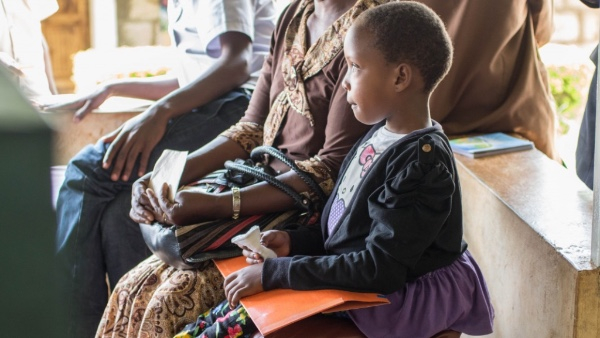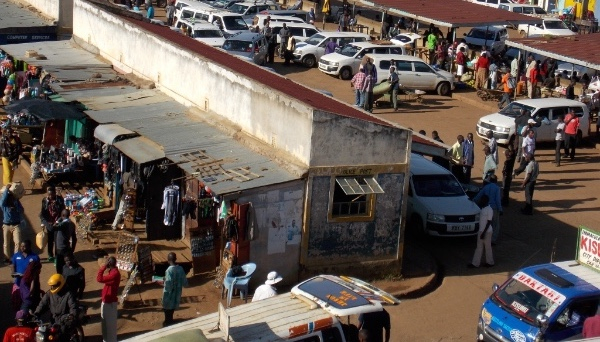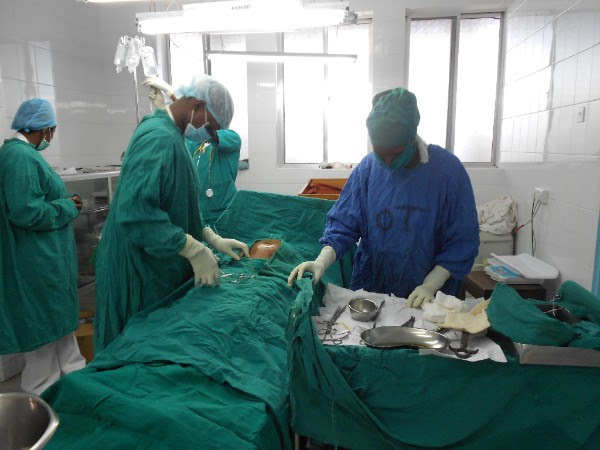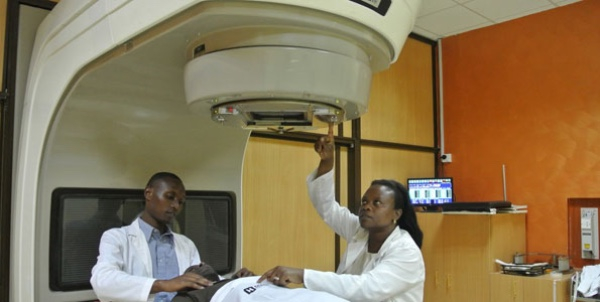 Visit Elective Africa website Visit Elective Africa website
|


|
|
|
| Elective Africa Monthly Newsletter |
 |
|
Welcome to our second MyElective inject issue 2017. In this issue, we take you through the reality of practice of informed consent in Kenya as well as examine how well its utilized in care delivery in the region. With a stand off between the medics and the government in Kenya having paralyzed the public health system. Our Electives and Pre- health shadowing internships are ongoing at Bomu Hospital in Mombasa Kenya and St Josephs Mission Hospital,Migori. We highlight the learning opportunity present in private healthcare and faith based or mission hospitals with a focus on St Joseph Mission Hospital.. As the World comes together to observe World Cancer Day, we take you through this epidemic that has climbed the morbidity and mortality charts to being a major threat to the health and well being. Do you have a healthcare topic of interest? Talk to us to guest write for our readers and let us share together. Back to top |
| Examining Informed Consent, The Kenyan Scenario |
 |
|
Medical ethics and patient’s rights are two closely intertwined domains and key pillars in the delivery of health services. Sector specific factors such as huge patient numbers, inadequate resources rights lead to full or partial adherence of the patient rights. After the preservation of the patient confidentiality which is critical to healthcare delivery comes the concept of informed consent which is the degree to which the patient takes part and has a voice in the type and nature of care they receive. The question is what are the contents and provisions of the informed consent document? Is this really adhered to in Kenya? Below is an article with a panoramic view of the often ignored patient right in the Kenyan Health System drawing insight on practical happenings and what the ideal case is supposed to be. “I met Sarah in 2013 at the ante-natal clinic when she was expecting her third baby at 31 years of age. I must admit that I had difficulty wrapping my head around the fact that she had a surgical scar on her abdomen resulting from a surgery two years back; and despite having signed on the dotted line, she had no idea what the surgery was about. Several times, as doctors who are required to perform emergency caesarean sections, we have ended up with poor outcomes because of delay in obtaining consent for the surgery. The patient is not allowed by her social circumstances to consent to the surgery as consensus must be sought from the spouse, parents, siblings and even the in-laws. In the process we end up losing a baby, having severe hemorrhage or even loss of the mother’s life. The most socially restrictive challenges to the patient accessing the care they need happen in matters to do with contraceptive use. Many women will take up contraceptives when they get married and hence the importance of partner participation. It is sad to see the woman cede her right to choose a preferred method because the spouse does not approve of it. Ill health is a point of extreme vulnerability for all of us. When your life is at stake, it is very easy to go along with any treatment option offered, if only to stay alive or be rid of the pain. For this reason, health care providers tend to have the upper hand in influencing decisions, which may inadvertently be abused even with the best of intentions. In Dr Bosire's view, after patient confidentiality, informed consent is the second most important patient right. Yet only a handful of patients in Kenya even know about it. It is enshrined in the Patient Rights Charter yet it is poorly appreciated. Informed consent is built upon seven key tenets that cannot be divorced from each other:
Putting this into perspective goes to demonstrate just how many patients go through medical care without really having consented to it. For consent to be valid, the patient must be fit to give it, adult (over 18 years), having understood their condition, the treatment, the options, risks and benefits, the unexpected issues, and willingly and knowingly taken their preferred choice of treatment. In the event that the patient is unfit to give consent, either by mental incapacity or by being in unconscious state, then there is need for a next of kin to take up this role. This person is commonly listed in the patient record and assumes authority to make medical decisions for the patient. Therefore, it is important to always ensure that whoever is listed as your next of kin is someone you trust to take such weighty decisions for you. When dealing with children, the matter of informed consent does not apply by virtue of their age. The parents/guardians are authorized to approve the treatment choice. However, their decisions must always be in the best interest of the minor, otherwise they shall be overruled by a court of law. This can get complicated when dealing with, for instance, the health of an infant born to a teenage mother who isn’t an adult herself yet. Our laws then may require strengthening in defining the role of emancipated minors in this case. As a patient, when you find yourself in need of medical intervention, kindly ensure you have given a valid informed consent. It is important to remember that you have a right to seek a second opinion before taking a decision.You are also entitled to the best possible care within the confines of the treatment options you consent to, even if you decline what is regarded as the best option of care.” Adopted from Daily Nation, by Dr Bosire and Obstetrician Practicing in Nairobi Back to top |
| Your Placement Destination - Migori Kenya |
 |
|
A walk into St. Joseph’s Mission Hospital; widely known as Ombo, and you will realize you are in the right place to gain both hands-on cultural experience and supervised clinical exposure for health degree students and extensive shadowing and observational learning for pre health students. The friendliness, the busy healthcare professionals walking along the corridors in a hurry in white coats and the ambience is a great environment for learning and understanding rural healthcare in a developing world. St. Joseph Migori Hospital is a mission hospital in the Catholic Church providing health care for all. It is under the Catholic Diocese of Homa-Bay. It is run by the Board of Governors headed by Rt. Rev. Bishop Phillip S. Anyolo, who provide strategic leadership, resource allocation and service delivery guidance in collaboration with the hospital staff.
A Sneak Peek in St. Joseph It is situated within Migori County, Western Kenya. The hospital started as a dispensary in 1974 at St. Joseph Catholic parish Migori. It was later constructed to what was then known as Ombo Mission Hospital and on to the now known facility. The hospital has a 200 bed capacity, an average of 20 - 30 daily patient admission and an average of 55% daily bed occupancy. Malaria and Pneumonia lead in the charts of both inpatient and outpatient visits. Departments and Services Provided Ombo hospital has both in-patient and out-patient services with 3 wards; maternity, general and pediatrics. The hospital also has a surgical theater with two operating tables and an accidents and emergency department. The hospital has an average of between 15 and 20 deliveries every day and therefore the obstetrics department is activity laden with unique shadowing and hands on experience, the casualty department is similarly busy department with motorcycle accidents a highlight of the daily departmental work load. Given that this region is among the regions in Kenya with the highest Malaria Incidences, the Internal medicine department (general ward) and outpatient visits give you an opportunity to learn on its prevention,diagnosis and treatment. A Unique Experience In and Out of The Hospital Once you join the hospital for your placement, you are part of them. You will have a wealth of experience to gain from the clinical rotations that normally happen from 8a.m to 11a.m. To the eye clinic, to the dental clinic, to their HIV/AIDS research centre, to the theatre, you have a whole lot of activities to learn from. Every Wednesday as from 7.30 a.m there is normally a Continuous Medical Training (CME) session where the staff continuously train themselves on different medical situations. This could be a very good avenue to gain more knowledge on the tropical diseases and also get to learn on the different conditions that are absent at your home country. Outside the hospital, there are a lot of activities that you can engage in. You can volunteer at either Onyalo Primary or at Emmanuel Children’s Home; a center that welcomes orphaned and vulnerable children who have either lost their parents due to HIV/AIDS epidemic or are being cared for by ailing grandparents. You could also tour the rich unexplored sites of the western circuit; Thimlich Ohinga, Sori bay beach, go hiking in the hills, visit the Macalder mines that contains small pockets of mines among others. Other than that, you can decide to go for a safari at Maasai Mara or a climb to Mount Kilimanjaro in Tanzania. My Migori Experience “The EA staff were so helpful in providing all the necessary information for the trip and went above and beyond my expectations when answering my questions. As our departure date neared, I became more confident and comfortable which wouldn’t have been possible without their support. Our arrival was smooth and timely... On an education level, I couldn’t have asked for a better experience… The rural setting gave us an opportunity to connect and feel comfortable with the members of the community and of our surroundings… We got to volunteer locally and focus on community outreach, something that is very important to me. We also did fun activities on the weekends, like small trips to Lake Victoria and Homa Bay.” Emily Courage from Memorial University of Newfoundland Back to top |
| See what clients say about us Drew Hulse |
 |
|
Today was surgery today and was very hectic. 4 women went into labor- 3 of which needed emergency C-sections. As Port Reitz Hospital only has one operating room, the third and fourth scheduled surgeries had to be pushed back to tomorrow so they had room to do the C-sections. Scott and I went into the second surgery- a thyroidectomy (removal of a goiter on the thyroid gland) only to be called out of it about an hour and a half in to "assist with an emergency". The one baby that was born normal was a still born and they were attempting to resuscitate it. The room was very hectic with one member of the team doing chest compressions while the others were hooking up oxygen to pump into the baby. After stabilizing the equipment- the doctors and nurses returned to the maternity ward to help the other 3 women in labor while scott and I continued care on the baby that was not breathing (it did have a pulse at this point). After an hour of giving the baby breathing assistance- it finally started to breathe on its own! Two hours after the baby initially arrived on our table, it was sent back to the maternity ward where it would continue to receive care. The baby's life will be very hard as the lack of an initial heart beat and lack of oxygen will result in cerebral palsy as a best case scenario. Scott and I concluded that we think the baby also had hydrocephalitis (water in the brain) which causes the head to be very large. The baby will have a very hard life- but it is alive! Drew Hulse Back to top |
| The Rise of Cancer in Developing Countries |
 |
|
You don’t mention the word cancer without people cringing. It’s one of those conversations that people rarely want to have. Frequent checkups are a foreign thing to most people forgetting that cancer is a silent killer. According to Kenya Medical Research Institute, 80% of cancer cases are diagnosed at advanced stages where not much can be done. In developing countries especially, the conversation being held regarding cancer and its adverse effects is still mum in comparison to developed countries where the conversation is a bit more alive and advanced. This has seen cancer deaths in developing countries increase tremendously over the last few years. A while ago, cancer was never viewed as a problem associated with developing countries and was never given much attention, these regions were known world over to be struggling with non-communicable diseases such as malaria, typhoid, cholera and other poverty related diseases. Recent times have seen this misconception change. Cancer is now among the biggest mortality contributors in developing countries. In 2008, approximately 72% of cancer deaths in the world occurred in the low and middle income countries. The rapid rise in cancer among the developing countries can be attributed to increased exposure to risk factors which include exposure to environmental carcinogens, tobacco use and excess alcohol consumption. Cancer as is known, is caused by the uncontrolled growth of abnormal cells in the body. There are certain cancers that are gender specific that is, they either affect males or females. Some of the well-known cancers that affect the male human species include prostate cancer, testicular cancer and penile cancer while the female species is more prone to cervical cancer, ovarian cancer, cancer of the uterus and breast cancer. As is the case, there are also some cancers that are more prevalent to specific races. Breast cancer for example is known to affect people of the white race more but be more highly aggressive on the black race. Developing countries being mostly comprised of the black and the Asian communities has seen their not so fair share of such cases. In Kenya for example, women are the most affected when it comes to cancer. Cancer cases associated with women comprise 59% of all cancer cases reported annually with breast cancer taking the lead. Another observable trend when it comes to cancer cases in developing countries is the rise of cancer cases and deaths among the young in society. Cancer for a long time was associated with the elderly in society but that has since changed. Cancer is no longer discriminatory when it comes to age as it was believed to being. Cancer cases have been reported in both new born and young adults. Childhood cancer accounted for 15% of cancer admissions at Kenyatta National Hospital, Kenya’s largest referral hospital between the period of 1998-2008. When it comes to developing countries and childhood cancer, only 1 child out of 10 survive as compared to developed countries where the survival rate is 7 children per every 10 children. With the increase of cancer related deaths, the government of Kenya has seen the need to put in more resources into the provision of quality cancer services by acquiring more diagnosis equipment and undertaking research on the field of cancer. For the longest time, Kenya has had only 2 health facilities offering radiotherapy services. In addition to the wanting figure of 2 radiotherapy facilities, Kenya has few cancer specialists that is, 4 radiation oncologists, 6 medical oncologists, 4 pediatric oncologists and 5 radiation therapy technologists. More effort is also being put behind cancer campaigns to create cancer awareness so as to educate the society on the benefits of early screening and the adoption of a healthier lifestyle. Constitutionally, a Tobacco Control Act and a National Alcohol Control Act have been signed into law with the aim of reducing cancer cases. Individuals have also taken it among themselves to manage cancer and its severe effects. With 39000 new cancer cases being reported annually and over 27000 people losing their lives annually due to cancer, it’s high time developing countries prioritized their efforts in fighting cancer and uprooting its adverse effects. The absence of technologically advanced equipment for both diagnosis, treatment and management of the diseases is a critical challenge to the health system in developing countries. Often this contributes to patients having late diagnosis on medical conditions and consequently the presentation of cases late to the hospitals. On a placement with Elective Africa you have the opportunity to build your skills and knowledge into the management of diseases in advanced stages. Back to top |
|
|

 2 2017
2 2017